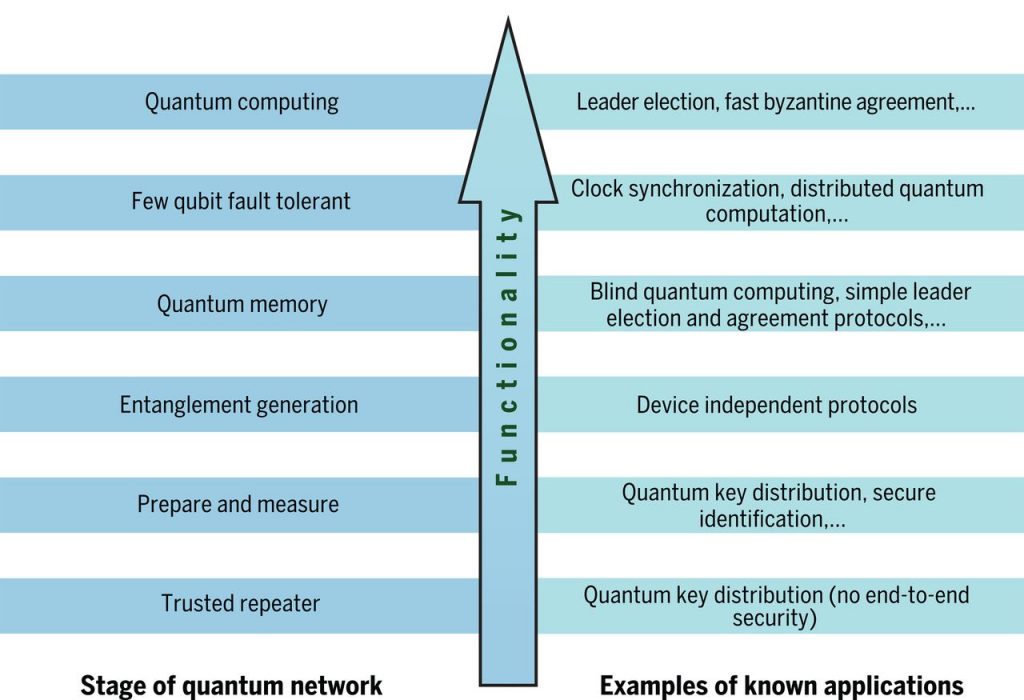NSF Fellowships, High Demand Begin to Boost U.S. Efforts
The United States lags behind other countries when it comes to quantum computing investment, but a growing concern about falling behind has led companies and the National Science Foundation to push for a better system to build expertise.
On October 22, the NSF announced a program to invest up to $6.7 million in grants to its Quantum Computing & Information Science Faculty Fellows (QCIS-FF) program aimed at developing, “a well-trained workforce capable of pursuing advanced research and development in quantum technologies.” The academic recipients are expected to train students in quantum computing while researching the technology.
The program will will support an entire academic year salary and benefits of a newly recruited tenure-track or tenured faculty member for up to three years. Each proposal has a limit of $750,000 for a single faculty position, with up to two awards per institution, across all departments. The idea is to build a pipeline for quantum computing expertise across different disciplines.
A story in The New York Times outlined the severe shortage of professors with quantum computing knowledge, putting the country at a disadvantage when compared to other countries, which haven’t limited immigration visas. Cities like London, Montreal, Paris and Beijing have become hubs for quantum computing.
The Times outlined the problem thus:
International competition is a particularly thorny issue in quantum computing because one of these machines — in theory — could crack the encryption that protects sensitive information inside governments and businesses around the world. If a quantum computer can be built, it will be exponentially more powerful than even today’s supercomputers.
The White House Office of Science and Technology Policy invited experts from government, industry and academia to Washington for a daylong policy meeting dedicated to quantum technologies, where executives like Christopher Savoie, founder and chief executive of a start-up called Zapata, talked about how much they are at a disadvantage in recruiting talent.
Companies like Google, IBM, Intel and Microsoft are already working on quantum computers, with assistance from their offices in other countries, but the Chinese government has given its tech firms billions in investment, while the United States investment has been zilch. Meanwhile, the U.S. spends over $700 billion on defense each year.
The Chinese government is working on a $10 billion national lab for quantum research in Hefei, set to open in 2020, and the Chinese e-commerce giant Alibaba is building a lab of its own. In 2016, the European Union invested 1 billion euros — roughly $1.2 billion — in quantum computing.
While there is no known commercially viable quantum computer so far, the technology is getting closer, according to a story on axios.com. Science magazine published a research paper showing how quantum computers could solve problems faster than conventional ones.
Our result shows that quantum information processing really does provide benefits — without having to rely on unproven complexity-theoretic conjectures,” said Robert König, a co-author of the paper, in a statement from the Technical University of Munich, where he teaches. The other authors are IBM’s Sergey Bravyi and David Gosset.

Stages in the development of a quantum internet.
The researchers said they expect “the first small-scale implementations of quantum networks” within five years.
According to a story on SingularityHub.com, which explains quantum computing simply, the study shows the advantages of quantum computing over current technology.
The main advantages of a quantum communication network over a conventional one are speed and security. Entanglement makes it possible to communicate instantly across arbitrarily large distances in principle. No matter how far apart you put two entangled qubits, acting on one will have an instant and measurable impact on the other.
read more at singularityhub.com








Leave A Comment